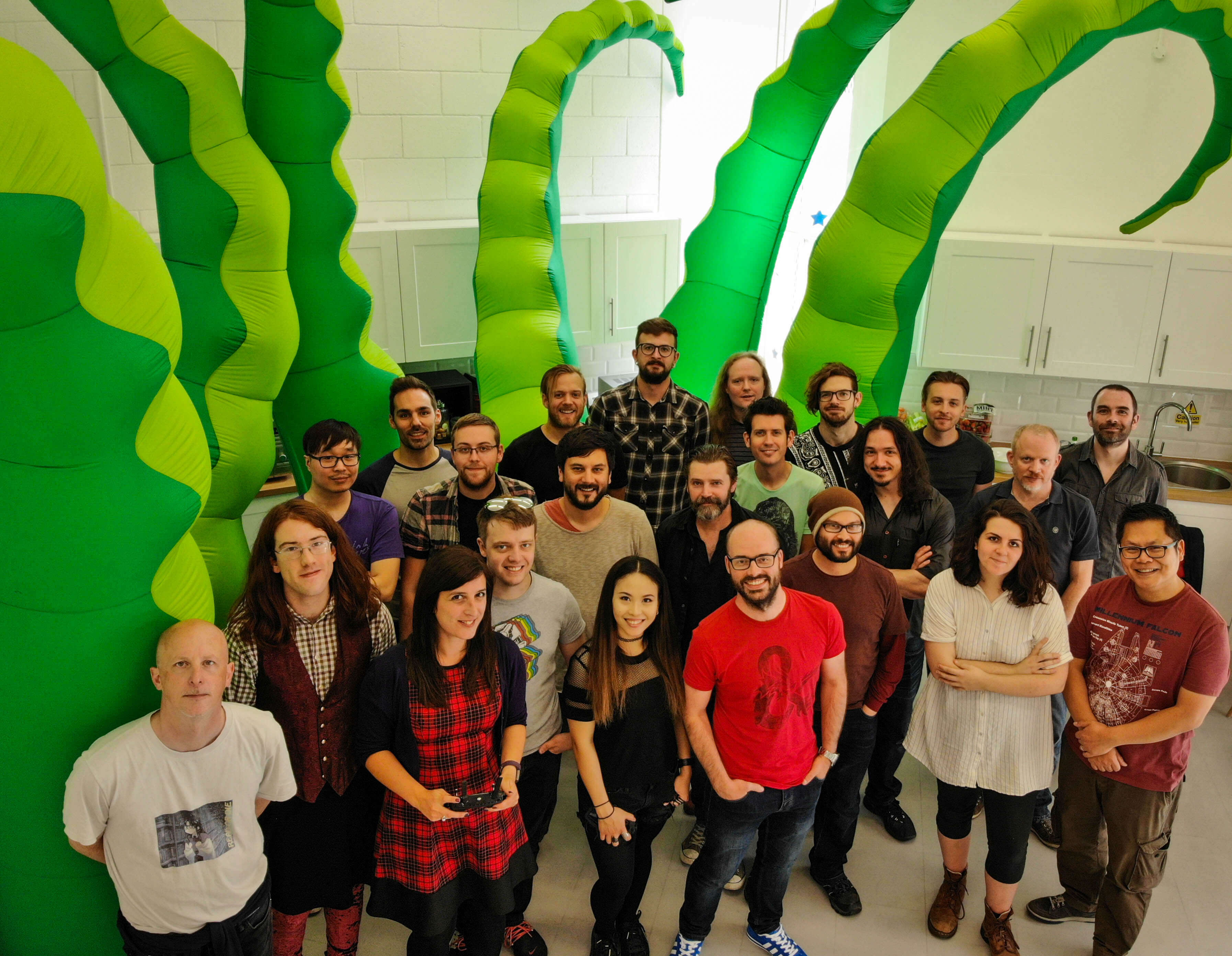One Year-On Pledge Partner Case Study: Payload Studios
By The Editor on 26/02/2021
As part of the 1 Year Anniversary for #RaiseTheGame we asked pledge partners and supporters to produce case studies for us to put towards our One Year-On Report.
The report is the pledge’s first accountability activity for partners and supporters, by giving organisations involved the chance to spotlight and talk about their involvement in the pledge along with all the equality, diversity and inclusion (EDI) efforts they are doing!
The aim of the report is not to name and shame organisations if controversies have occurred, or there are no developments in particular areas for some time, but to encourage and normalise honest conversation around recruitment, work practices and external representation. Giving those involved in the pledge a chance to reflect, be transparent and review their activities - to be accountable and see where they are doing good and/or can improve in.
On the other hand, the report is also about rejoicing best practice and the achievements many of our pledge partners and supporters have attained on their EDI journeys either on their own or with the help of the pledge. As #RaiseTheGame is all about collaboration and learning from each other - thus allowing our pledge partner and supporter case studies to also act as a resource for other games businesses and organisations to learn from and see how their peers are improving diversity and inclusion in their workplaces.

Having been apart of the pledge since it launched and having seen the entire year by our side. Here's how Payload Studios are approaching the three pledge pillars and developed with the pledge one year-on:
Payload Studios is proud to have been a launch partner for the #RaiseTheGame pledge. Over the last 12 months, we have continued our commitment to use our platform to drive positive change within the games industry. Although we have a hugely talented team, we are aware that we need to take action to promote diversity and inclusion within our own studio and hiring processes.
Our own inclusion and diversity initiative, Game On, was launched in April 2019, prior to signing up to the pledge. What began as an event series to accelerate change in the games industry, now also runs through key aspects of our operations - from internal processes, game development and recruitment to our Tentacle Zone virtual programme for game developers. We know that we don’t always get it right and the journey to achieve a more inclusive industry is a long one, but it’s one that we believe in and are committed to.
Pillar One: Recruitment
We are dedicated to ensuring the diversity within our team improves as our independent studio grows and we make new hires. We have continued to assess our processes/policies and have taken several steps with the aim of recruiting more diversely and reaching a greater number of candidates from underrepresented groups. These actions include:
- Continuing to follow best practice for jobs specs, such as checking for gendered language, removing desirable criteria and stating our commitment to inclusion.
- Continuing to assess our recruitment processes to ensure we are as inclusive as possible (including managing the potential impact of unconscious bias).
- Working with recruiters committed to diversity and exploring different platforms to post job listings in order to reach more diverse talent - we hope to do more of this!
- Increased workplace flexibility where possible - such as enhancing our family policy and having a more flexible approach to long term remote working.
- Added a Diversity page to our website to ensure our commitment to D&I is clear to prospective candidates. The page includes info about our Game On initiative.
- Utilized our Game On events to expand our networks and highlight any available vacancies.
- We are planning do more to collaborate with different organisations representative of underrepresented groups in the future in order to reach pools of talent we may not yet be reaching.
2020 has seen an improvement in the diversity of our team. As we have taken a multi-pronged approach to improving our practices it is difficult to attribute this to a specific action. We know we still have to make significant improvements and will continue to explore what more we can do to reach underrepresented groups and to recruit as diversely as possible, at all levels of the business.
Pillar 2: Work culture, retention, training and overall inclusivity towards staff
Payload is committed to providing an inclusive and enjoyable workplace for all our current and future staff. This is an evolving and ongoing process which we understand takes time and effort to improve.
Key steps that we have taken this year includes:
- Launching an inclusion focused Employee Resource Group to ensure that those who are interested are able to engage in our inclusion focused activity (during work time).
- Explored ways in which we can ensure all our staff can have a voice, such as providing a completely anonymous way for our team to provide feedback.
- Revamped our reporting processes to ensure all staff have multiple and robust channels to report any issues that occur in the workplace.
- Spoken to our team about inclusion and why it is a priority for us. We have also provided information on key areas such as unconscious bias.
- Continued to strive to make inclusion part of everything we do, including areas such as facilities where we are taking steps to be more accessible.
- Enhanced our Mental Health support for our team, including implementing an Employee Assistance Programme and introducing a Slack Wellbeing channel.
- Started to host social events to celebrate the different nationalities and cultures within the studio - we hope to do more of this in 2021.
- Continued to run our public inclusion focused Game On events with the aim of learning more about the actions we can take and sharing this with the wider industry.
- Launching our new Tentacle Zone virtual incubator programme to support early stage games studios from underrepresented backgrounds with sponsored places from industry partners. This also includes ensuring that there is diverse representation amongst our industry tutors and mentors.

Pillar 3: diverse and inclusive representation in your games, events and all other activities you engage in
We have committed to making inclusion and diversity a key pillar for our upcoming projects and to ensure this is considered at the planning stage. We will be doing more to find further actions we can take in this area.
In other areas:
- Game On - we have continued to run our inclusion focused events and are working on a more frequent programme of events for 2021. So far, we have welcomed a range of expert speakers and attendees from almost 200 different organisations representing a cross section of the games industry.
- Representation at events - we are committed to ensuring that diversity is reflected in our speakers for all internal and public events (not just those events focusing on diversity).
- Sharing knowledge at conferences - in addition to our Game On events our team has also spoken at events such as Brighton: Develop on the topic of inclusion and diversity in the industry.
- Outreach - we partnered with a diverse school in Stratford to help with a remote learning video games project. This included joining the school in a session to discuss careers and inclusion in the games industry. Our team have also taken part in various events with students (such as Ukie Student Conference).
- Public Statements - adding a Diversity page to the website and making public statements on our commitment to diversity and inclusion.
- Tentacle Zone Incubator - we have ensured that inclusion is a key thread that runs through our incubator, which is focused on underrepresented talent. A key aim of the incubator is to connect individuals from underrepresented with mentors and leaders that share their backgrounds or life experiences.
- Our diversity initiative was nominated for an award at the 2020 TIGA awards.

Challenges and how the Pledge has helped
Making workplaces and the industry more inclusive is not an overnight task, nor is it always the easiest process. The more we learn the more we realise that there is more that we can, and should, be doing. One of the most significant challenges is that it takes time and effort to constantly research, learn and evolve the studio in a way that works for the business but also ensures that diversity and inclusion is a key consideration in everything we do.
Although we started steps to improve the diversity and inclusion of the studio before joining the pledge we have found #RaiseTheGame to be helpful in a number of ways:
- Providing us with a platform to speak about the steps we have taken to address inclusion. We hope this helps other indie studios which sometimes require a different approach to larger organisations.
- We’ve had the chance to collaborate with Ukie on a number of inclusion focused events and projects. This has provided us with additional speakers and promotion opportunities.
- The pledge working group meetings and events have enabled us to learn more about subjects related to equality, diversity and inclusion. They have also given us valuable insights into what other video games companies are doing which in turn has enhanced our own understanding.
- Through the pledge updates and newsletter, we feel more informed about the inclusion activity in the industry as a whole and how we can work with others to achieve change.
- The Raise the Game team has made key introductions to other pledge members, organisations and initiatives that we have been able to get involved with.
- It acts as a public statement and reminder that inclusion and diversity is a key priority for us as a studio.
We look forward to continuing to be a part of the #RaiseTheGame pledge and committing to drive positive change within our studio and beyond.